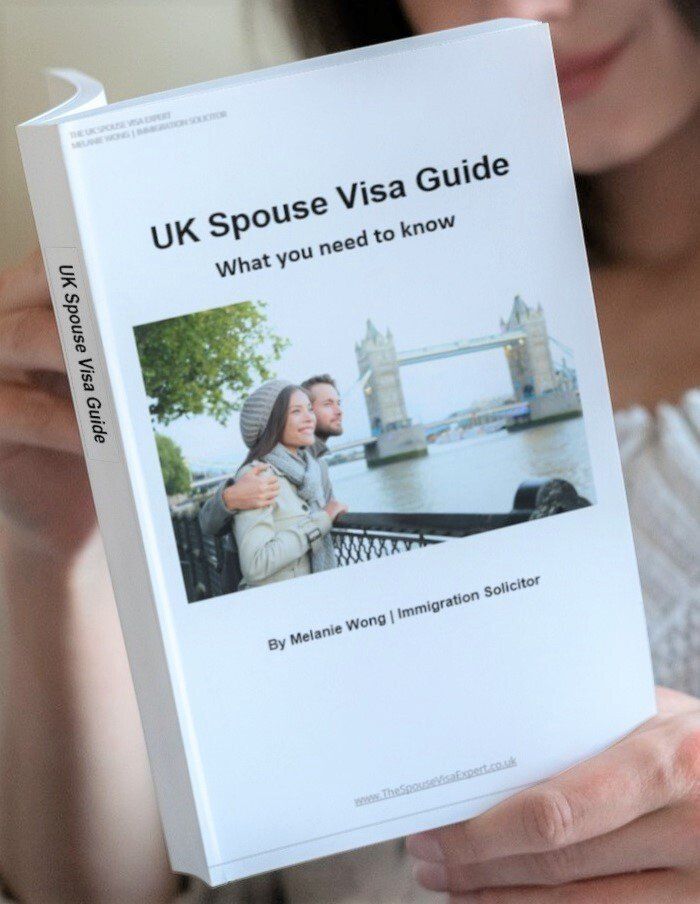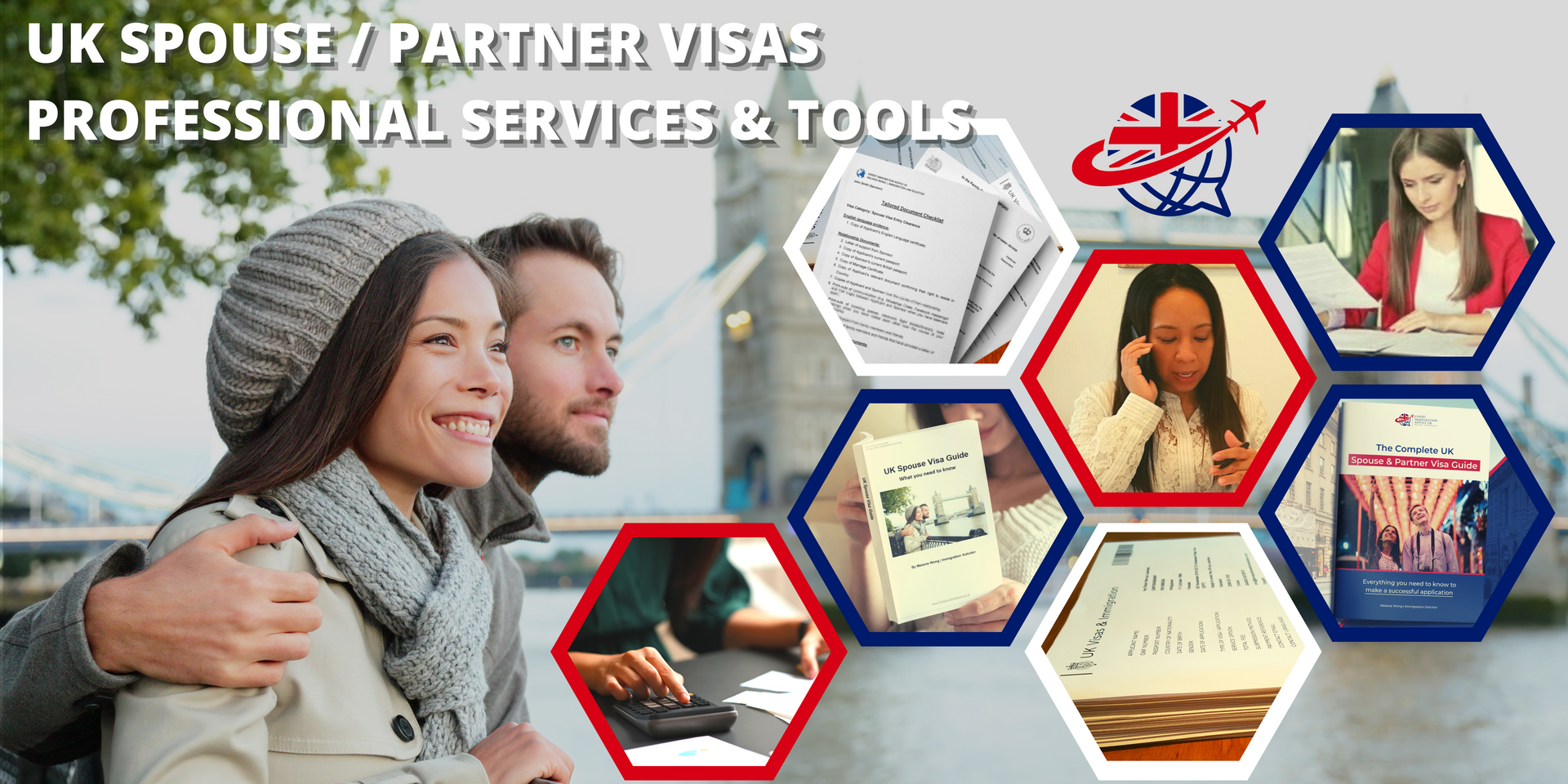Which Income Sources Can you Combine For a UK Partner Visa?
Share this:
The financial requirement for Family member visas (under Appendix FM of the Immigration Rules), has a minimum income threshold which must be satisfied.
For new applicants applying for entry clearance to the UK or switching to the family route inside the UK, the income threshold is £29,000 gross per annum. For those who were originally granted leave as a spouse/partner before 11 April 2024 and extending their visas or applying for settlement, the previous income threshold of £18,600 gross per annum applies. The previous income requirement also has a child element applicable when there are child dependants applying with the main applicant. The threshold of £18,600 increases to £22,400 if one child will also be applying, and then further increments of £2,400 for each additional child that will be applying (up to a maximum threshold of £29,000).
This article will cover the different income sources that can be used and also which sources can be combined to meet the financial requirement for a UK partner visa.
Income Sources Accepted by the Home Office:
The sources of income that qualify to meet the minimum income threshold for UK Partner applications are:
Category A: Salary from Employment (6 months or more)
Where the sponsor partner (and/or the applicant if they are in the UK with permission to work) has been working with the same company for at least 6 months immediately prior to the application being submitted.
Category B: Salary from Employment (less than 6 months)
Where the sponsor (and/or the applicant if they are in the UK with permission to work) has been working with the same company for less than 6 months immediately prior to the application being submitted.
Income under this category must meet the financial requirement in 2 parts:
- The sponsor partner and/or the applicant (if they are in the UK with permission to work) has been with their current employer for less than 6 months (there is no required minimum period for their current employment). AND
- They must in addition have earned the level of the income threshold required in the 12 months immediately prior to the date of application.
*Categories A and B also applies to sponsors that have been living and working abroad and returning back to the UK with a confirmed offer of employment with a UK based company.
Category C: Non-employment income
Where the sponsor and/or applicant has been receiving income from other sources for at least 12 months immediately prior to the application being submitted. Examples of this can include: rental income, dividends, income from investments, interest from savings, stocks and shares.
Category D: Cash savings
For cash savings, only amounts above £16,000 can be used i.e. the first £16,000 will not count towards meeting the income requirement.
Cash Savings must also be immediately accessible and held in a personal bank/savings account in the name of the applicant, sponsor or the couple jointly AND either:
- Held in the account(s) for at least 6 months immediately prior to the application being submitted
- If the funds have been held in the account(s) for less than 6 months because they were transferred/liquidated from investments (including property), the investments must have been owned by the sponsor partner and/or applicant for at least 6 months prior to the date of application.
Category E: Pension Income
The gross annual income from any State (UK Basic State Pension and Additional or Second State Pension, HM Forces Pension or foreign Pension), occupational or private pension received by the sponsor partner or the applicant can be counted towards the financial requirement.
The annual pension income will be accepted where the pension is a source of income at least 28 days prior to the application.
Category F: Income from Self-employment or Director/Employee of a specified UK Limited company (Last full financial year)
Where the sponsor partner (and/or the applicant if they are in the UK with permission to work) is in self-employment or is either the director and/or employee of a specified limited company in the UK, at the date of application, they can use income received from the last full financial year to meet the financial requirement.
Category G: Income from Self-employment or Director/Employee of a specified UK Limited company (Average of last 2 full financial years)
Where the sponsor partner (and/or the applicant if they are in the UK with permission to work) is in self-employment, or is the director and/or employee of a specified limited company in the UK, at the date of application, they can choose to use an average of the income received in the last 2 full financial years to meet the financial requirement.

What Income Sources Can You Combine to Satisfy the Income Threshold?
If you are unable to meet the minimum income level of £29,000 or £18,600 gross per annum (see the beginning of the article for which threshold is applicable for your application) with a single income source, for example, Category A: salary from your employment, the rules permit you to combine some income sources together to meet the respective threshold.
The following table shows which income sources can and cannot be combined:
| Category | A | B | C | D | E | F | G |
|---|---|---|---|---|---|---|---|
| A | - | X | ✓ | ✓ | ✓ | ✓* | ✓* |
| B | X | - | ✓ | ✓* | ✓ | ✓* | ✓* |
| C | ✓ | ✓ | - | ✓ | ✓ | ✓* | ✓* |
| D | ✓ | ✓* | ✓ | - | ✓ | X | X |
| E | ✓ | ✓* | ✓ | ✓ | - | ✓* | ✓* |
| F | ✓* | X | ✓* | X | ✓* | - | X |
| G | ✓* | X | ✓* | X | ✓* | X | - |
Exceptions / Additional Criteria for combining Income Sources
There are also some exceptions or additional criteria as to when specific income sources can be combined together (these have also been marked with an * in the table above).
Income under Category B
Cash Savings (Category D) can only combined with Category B from the income you have earned with your current employment at the date of application. - It cannot be combined with the total income you have actually earned over the last 12 months.
Income under Categories F or G
Income from Self-employment or Director/employee of a specified limited company in the UK, can only be combined with Category A or B: income from employment, Category C: non-employment income and Category E: pension income, where your income from these sources has been earned within the same financial year(s).
Which Income Source is the best to use for your Application?
If you have multiple income sources that you can use to meet the financial requirement, choosing which income source(s) to include in your application should be determined by the volume of documents that you will need to submit (to evidence the respective income source). Each category of income requires a specific set of relevant documents to provide to the Home Office.
Some income sources will also involve an extensive set of items that will take more time to gather in comparison to other sources and may take longer for the Home Office case worker to assess. This can be further complicated by any additional circumstances at play. For example the documents required to evidence cash savings which are held across multiple bank accounts and originate from a combination of cash gifts and proceeds of several property sales, will be much larger than the documents required to evidence the employment income of someone who has been working in the same job for over 6 months.
Want Professional Support and Guidance for your
UK Spouse / Partner Visa Application?
We take huge pride in helping thousands of couples to successfully navigate the UK Spouse / Partner Application process.
To help you achieve a successful outcome for you/your loved one(s), we have put together a range of Services and Tools specifically for UK Spouse/Partner Visa Applications including Step-by-Step Guides, Templates, DIY Application Packs, Documents Checking Service and More!
Related Posts
Share this:
While every effort has been made to ensure that the information and law contained in this article is accurate and current as of the date of publication, we accept no responsibility for its accuracy or for any loss or damages arising from accessing, or the reliance, of this guidance.
Please also note that the information does not represent a complete statement of the Law and does not constitute legal advice.
If you would like specific professional advice about your UK immigration matter, please consider booking a consultation or one of my other legal services.
Making a UK Visa or Settlement application can be a stressful experience, and whilst there is a lot of ‘free’ information online, finding clear expert guidance that is up to date, and in line with your specific requirements can be a daunting task.
If you have any concerns about your case, it is recommended to reach out for advice from a trusted legal professional.
















